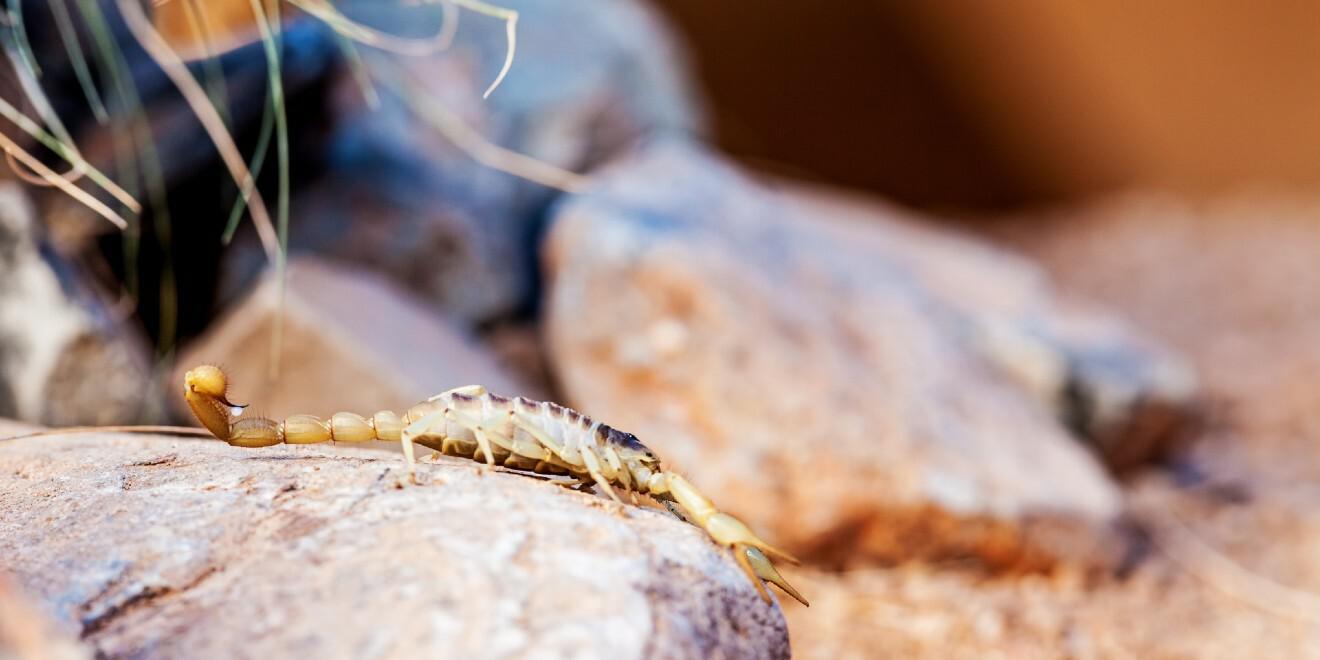How to Naturally Repel Scorpions from Your Home
Posted by Mosquito Squad
October 17, 2024

Author: Emma Grace Crumbley, Entomologist
It’s scorpion season, and I don’t mean the star sign. As the weather gets cooler, scorpions are finding their winter homes under rocks, in woodpiles, or, in some cases… inside your home!
The good thing is it's easy to figure out if you have scorpions in your home. Scorpions are most active at night, and they fluoresce under UV lights. If you have a black light flashlight, scan your home and look for anything that glows. However, control can be tricky once you locate a scorpion. Adult scorpions are as small as 10cm to as long as 20cm long, and their thick bodies and dense cuticles make it difficult for pesticides to penetrate them. Most extension agencies and pest management professionals don’t recommend using pesticides to try and tackle your scorpion problems.
Instead, prevention and natural control options are the key to managing a scorpion problem.
You can prevent scorpions from coming into your home by:
- Sealing unwanted entry points. Scorpions in your home during winter are likely summer visitors that never left. Checking that your home’s doors and windows seal thoroughly and filling any unwanted gaps, cracks, or crevices can significantly reduce the number of scorpions in your home.
- Watch your woodpiles. Scorpions love hiding in woodpiles. The tight spaces provide great shelter during colder months. If you have woodpiles outdoors, either avoid using them until it warms up and scorpions may leave, or shake the wood well before bringing it indoors.
- Lights out. Scorpions cannot see well, so they rely heavily on light cues. Outdoor lights, like patio or deck lights, can attract scorpions to come out of hiding. Consider turning outdoor lights off at night or setting them to an automatic timer.
There are a few ways you can try to naturally repel scorpions from your yard:
- Remove scorpion habitats around your yard. Scorpions are dormant during the day and prefer to hide in tight, dark, damp areas before coming out at night. Removing unnecessary leaf piles, woodpiles, or yard debris from your lawn gets rid of their hiding spots and forces scorpions to look elsewhere for shelter.
- Promote native predators. Many animals eat scorpions as a part of their diet, including birds of prey, rodents, mongooses, chickens, spiders, and several reptiles. Promoting these predators can help reduce the number of scorpions in your yard.
- Discourage scorpion prey. Scorpions are opportunistic eaters, meaning they aren’t picky when it comes to a meal. Taking care of your lawn and discouraging other insect pests, like roaches, earwigs, and wasps, from hanging around will deplete scorpions of their food sources.
- Add diatomaceous earth around your yard. Diatomaceous earth (DE) is a dust made from dried, fossilized remains of aquatic phytoplankton called diatoms. Sprinkling DE around your yard will dry out insects and arthropods that come in contact with it, including scorpions. This can discourage scorpions from hiding in areas you don’t want, like in wood piles.
Take the sting out of pest control!
If your scorpion problems are too complex to handle alone, we’ve got you covered! Call the Squad for a free quote today. Services vary by location.
